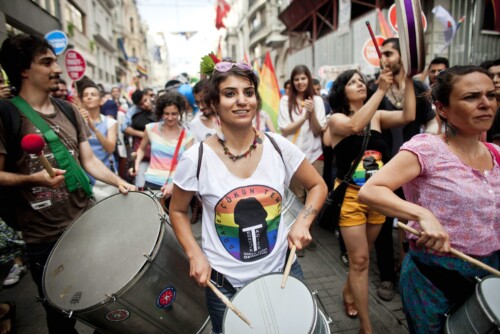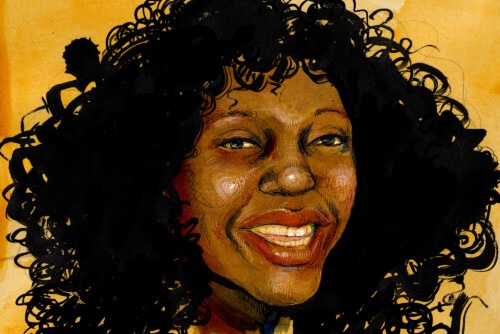In 2005, Cha-Cha Connor and I embarked on an ethnographic study in Durban of 50 women AIDS activists from all of South Africa’s racial groups to discuss the barriers they faced in conducting feminist organizing around the epidemic (2007). Because of the activists’ fears about negative consequences if they revealed their names, the study was conducted on the condition that its participants and their organizations would remain anonymous. Unsurprisingly, given women activists’ fears of negative repercussions if their critiques of their organizations appeared openly in print, voicelessness was the key issue that emerged in the study. Women AIDS activists felt there was resistance to substantive discussion of gender issues in their organization. One activist told us that in her organization:
Gender had been identified, but they were just resisting [the inclusion of] gender. I mean, they would go so far as purchasing a T-shirt that had a “women in AIDS” message on it, and that would be about it. (Interview, April 27, 2005).
As we have seen, women make up the majority of those living with the virus in South Africa. They also make up the majority of ordinary members of AIDS-related movements and organizations. Yet their voices have not been prominent in AIDS campaigns, or in the local or international media. One woman activist told us:
Women have been participating in AIDS organizing since the beginning of the epidemic. But . . . a woman who does home-based care and a woman who’s caring for orphans gets credited and thanked. And then a man . . . who speaks on behalf of everybody gets prestigious recognitions . . .. I think that needs to change, because women are doing similar kinds of work. It’s like we are good if we are doing domestic and caring types of H.I.V./AIDS work . . . but then if you do political stuff, you get marginalised: no recognition whatsoever. (Interview, April 27, 2005).
It would appear that rhetoric about “women and AIDS” and “gender and AIDS,” which is commonly deployed in the “AIDS world” of the Joint U.N. Program on H.I.V./AIDS (UNAIDS), the World Health Organization, scientists, donors and international NGOs, has not always translated into gender transformative practice in South African AIDS NGOs. These issues remain current in South African AIDS activism. For instance, in relation to the Treatment Action Campaign, Janine Stephen recently argued:
As with any organization, TAC’s members reflect the society they live in; the organization is not immune to sexism. Changing attitudes towards women and promoting equality have become a vital focus. But changing mindsets is not something that happens overnight (2009: 165).
According to Stephen, although formal moves have been underway to improve the organization’s commitment to gender equality in recent years, there have been setbacks along the way. In particular, in 2007 several senior women in the organization resigned, and in the absence of an official TAC press release about the issue, rumors were generated that the resignations were related to “the organization’s lack of commitment to women’s issues” (2009: 166). More recently, the organization has taken steps to demonstrate its commitment to gender equality, such as establishing a Women in Leadership program to develop the leadership skills of women activists, the appointment of a women’s rights coordinator and the election of its first female national chair, Nonkosi Khumalo (Stephen 2009).
However, the example of the TAC demonstrates that the internal transformation of an activist organization does not automatically alter cultural perceptions of women leaders. Stephen has gone on to argue that the media often prefers speaking to the male leaders of the organization, and that male representatives from COSATU or the ANC sometimes state that “they don’t want to talk to a woman or a child” (2009: 169). Similarly, the ANC-led government recently created a Ministry of Women, Youth, Children and Disability. The creation of this ministry has been critiqued by feminists as being patronizing to women, who are adults who can claim rights independently, compared to children, who deserve (and require) the protection of adults (Lowe Morna 2009). This automatic equation/association of female leaders with children (and women’s interests with children’s interests), and the assumption they are less knowledgeable or competent, acts to undermine their authority and ability to shape and implement feminist agendas. As I will argue next, an even more serious barrier to women’s AIDS activism is gender-based violence, which is also a key social driver of new infections.



